HIgh energy pitching at the Dempsey Startup Competition
How Foster Supports Entrepreneurs
Opportunities at Foster help students grow as entrepreneurs and founders
When Jerred Mace (BDes 2023) arrived at the University of Washington, he brought interests in artistic expression, innovation and entrepreneurship. He also carried a sensitivity to people with physical challenges, the imprint of early struggles with low vision. In his sophomore year, he fell in love with industrial design and decided to major in it.
One day, the themes of his life converged when he saw a video of a blind man at a soccer match following the game through touch on a game board. His hands were guided by a sighted woman who was watching the game below.
“That’s when I started thinking about how technology and design could perhaps contribute and amplify that sort of experience for other people with blindness or low vision,” Mace says.
He co-founded OneCourt, a startup developing technology that enables visually impaired people to enjoy live sports by translating game play into trackable vibrations.
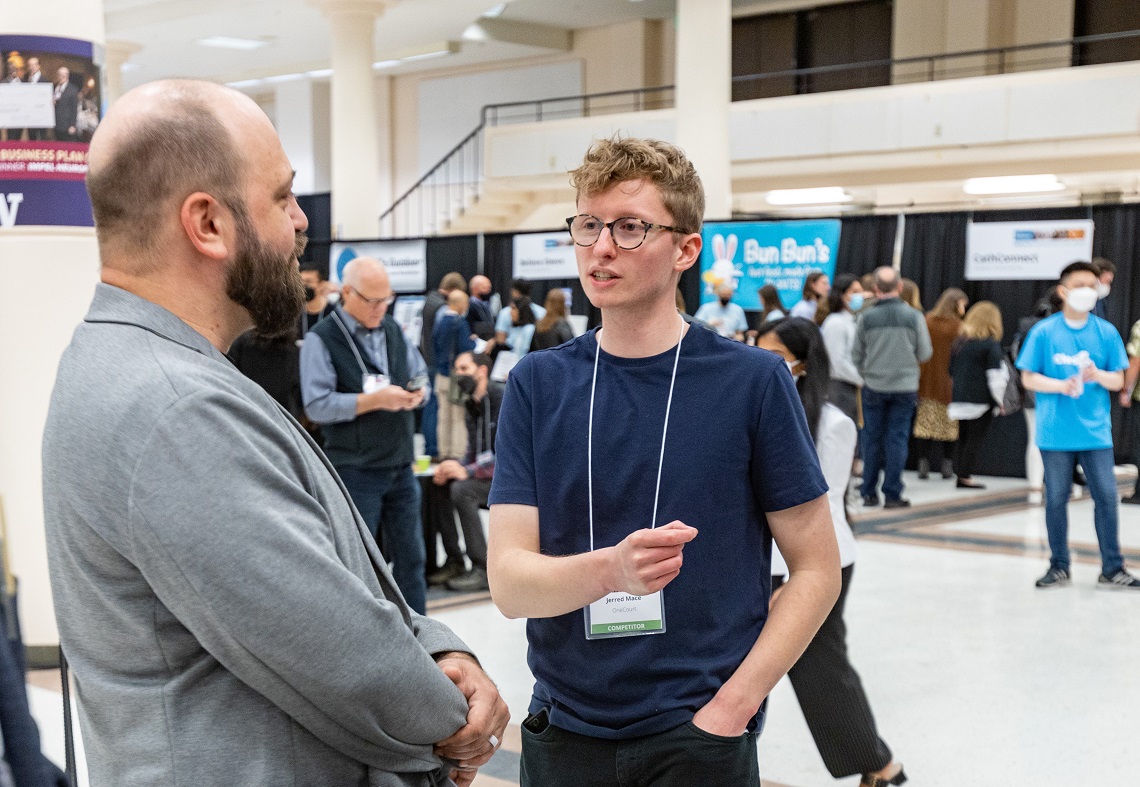
This innovation helped land Mace a spot in this year’s Husky 100 and warranted inclusion in a Fast Company article on ways that computer vision can improve lives. He and co-founders Antyush Bollini, Andrew Buckingham and Nick Durand have committed to pursue OneCourt after graduation, supported by a grant from Microsoft’s AI for Accessibility program.
Mace’s early success and the considerable promise of OneCourt have been catalyzed by an extraordinary entrepreneurial ecosystem that is rooted at the Foster School of Business and stretches across the University of Washington and beyond.
Learning entrepreneurship at Foster: Four main hubs
Each year, hundreds of innovation-minded students like Mace—studying management, engineering, computer science, public health and anything else under the sun—develop skill sets and cultivate business ideas within this sprawling ecosystem. The opportunities are endless. From paper-napkin brainstorming to startup launch, students find endless support to develop business plans and grow as founders.
The entrepreneurial ecosystem at the Foster School of Business has four main nodes:
- The comprehensive Arthur W. Buerk Center for Entrepreneurship is one of the oldest and most respected centers of its kind in the country, serving innovative undergraduate and graduate students across the University of Washington.
- The Lavin Entrepreneurship Program, a Buerk Center co-curricular program, engages a select cohort of undergraduate entrepreneurs in a motivated community of peers where programming builds entrepreneurial skills and personal networks.
- The Master of Science in Entrepreneurship Program immerses advanced entrepreneurs in a hybrid of new-venture accelerator and targeted MBA.
- Creative Destruction Lab-Seattle, part of an international network, offers a unique accelerator for early-stage startups and an indelible experiential opportunity for embedded students.
“We all understand the richness of experiential learning and cross-program networking,” says Samantha Ogle, director of the Master of Science in Entrepreneurship Program. “So, we help students connect with valuable opportunities at Foster and across the UW campus.”
Buerk Center builds entrepreneurs
For many students, the journey begins at the Buerk Center. Critical to its efforts to build young entrepreneurs from the ground up, Buerk annually hosts three competitions for undergraduate and graduate students and an accelerator for recent graduates. Since 1998, these programs have awarded $4.5 million in seed money to students. The challenges are open to students at colleges across the Cascade Corridor—Washington, Oregon, Idaho, British Columbia, as well as Alaska.
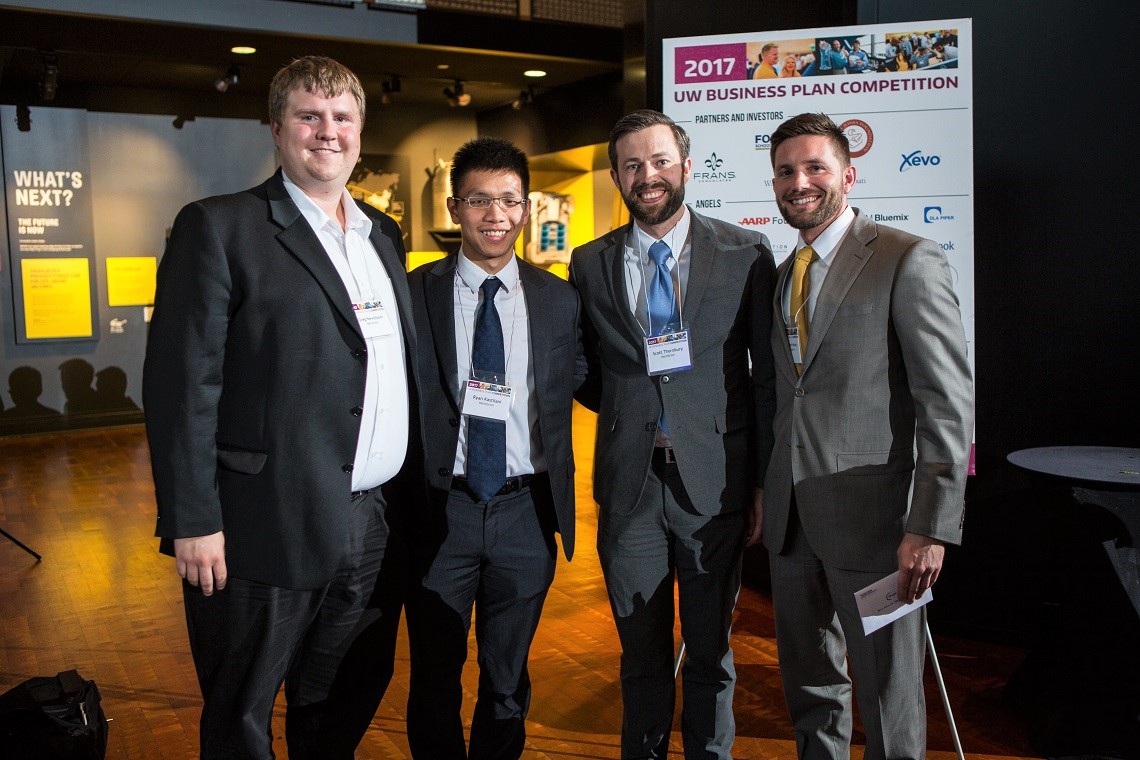
One of the many success stories is Greg Newbloom (PhD 2014), the founder and CEO of Membrion, a tech firm that uses ceramic membranes to recycle and reuse wastewater. Newbloom, who earned his doctorate in chemical engineering at the UW, met his company’s earliest investors at Buerk competitions and placed first in the 2017 Dempsey Startup Competition. These days he volunteers as a judge, alongside hundreds of the region’s entrepreneurs and investors.
“The competitions really were about building my entrepreneurial/early investor network, having my ideas challenged and refined, and learning how to effectively communicate my ideas,” Newbloom says.
In over 25 years, more than 6,400 students on 2,200 teams have competed in the Dempsey. Nearly 250 of those teams have earned funding totaling about $2 million.
The more specialized Alaska Airlines Environmental Innovation Challenge and Hollomon Health Innovation Challenge play on regional economic strengths. Challenges like these encourage students to see wider applications for solutions they’re developing in the lab or field—and they foster a wide range of ideas.
The ideas that have advanced into early stage startups are accepted in the Jones + Foster Accelerator, a six-month postgraduate program for advanced student startups.
Newbloom calls Jones + Foster “one of the single most valuable programs I have participated in as an entrepreneur, and I have done a lot of accelerators. The Buerk Center has such an incredible network, and they built me a bespoke mentoring team that really helped me to connect the dots on a lot of critical business elements.”
Lavin program for highly entrepreneurial students
One of the many offshoots of the Buerk Center is its Lavin Entrepreneurship Program. The selective program of specialized coursework and experiential challenges serves highly entrepreneurial UW undergraduate students in all disciplines. And it runs through their entire UW undergraduate experience. Most Lavin students compete in one or more Buerk Center competitions.
They also find affinity groups in the many other organizations and opportunities also focused on entrepreneurship and innovation at the UW.
After not getting into the Lavin Program in his first year at the UW, Mace immersed himself in every entrepreneurial opportunity and activity he could find. “Lavin is exclusive,” Mace says. “But looking back, I’m actually glad I didn’t get in that first year. I might have taken those other opportunities for granted.”
Among them, he participated in the Buerk Center’s Build Your Own Business (BYOB) workshop, a drop-in program for undergraduates in all disciplines to share their ideas for a product or service with local entrepreneur coaches. Mace went to every session. He still stays in touch with the coaches.
“I benefited greatly from that support,” he says. “Entrepreneurs in this area seem to want to give back and it’s usually with their time and experience.”
Mace got into the Lavin program his sophomore year. After some frustrating false starts, he embraced a new idea more in line with his interests. On a whim, he entered the UW Science and Technology Showcase, an idea pitch competition hosted by the student organization SEBA and the Buerk Center—and won.
That pushed him to present his pitch at an all-student Lavin meeting, and other students with complementing skills in tech innovation strategy, computer science and engineering stepped forward.
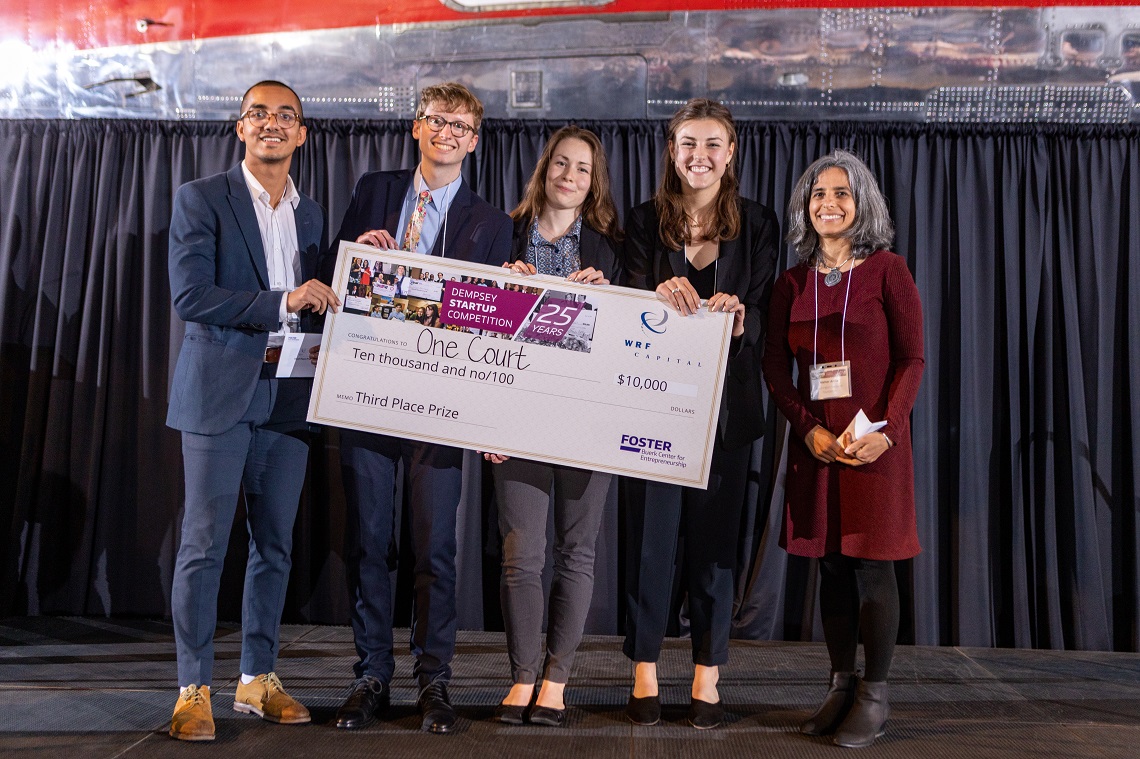
The result of this collaboration was a third place prize at the Hollomon Health Innovation Challenge and another third at the Dempsey Startup Competition, plus a coveted spot in the Jones + Foster Accelerator.
“Lavin became invaluable to me,” Mace says. “I started having these very large roundtable discussions with people who I wanted to work with. Building a team was so easy because it reflected the energy and excitement around the idea.”
Learning entrepreneurship with cross-pollination
This cross-pollination of different disciplines is one of the hallmarks of entrepreneurship at the UW, says Amy Sallin, director of the Buerk Center.
“For students, their journey is not linear,” she says. “They’re in all areas of the innovation sandbox of the university. It’s not just the Foster School.”
A variety of backgrounds fuels the strongest teams. More than a good business idea, investors see future success in companies whose leaders work well together and reflect a mix of cultures, perspectives, experiences, interests and genders.
Foster’s Entrepreneurship Minor and Technology Entrepreneurship Certificate programs, which draw hundreds of students in a wide range of disciplines from across campus, are built with that in mind.
“We make sure these classes have that kind of diversity of thought,” Sallin says.
Creative problem-solving pervades UW’s entrepreneurship efforts. Even students who view business with a wary eye become “entre curious” when they realize the social and cultural impact they can make.
“We reach out to those students across campus who don’t see themselves as entrepreneurs,” Sallin adds. “This is a skill set everyone should learn. You develop the tools to see a problem and come up with a unique solution.”
Master of science in entrepreneurship degree
Students in Foster’s Master of Science in Entrepreneurship Program bring with them an innovation mindset and a deep curiosity to solve problems.
The program is designed to equip and empower them to become successful and insightful entrepreneurs. Over an intensive year, a founder-focused curriculum builds a foundation for real-time application as students develop business ideas that they either brought to Foster or created with classmates once there.
More than just time to focus on building a business, the program also provides an all-access pass to a larger entrepreneurial world. Its hallmark of concentric communities places the program’s diverse and cohesive cohort of students at the center of a vibrant suite of entrepreneurship resources across Foster and the UW and a remarkably collaborative Seattle entrepreneurial ecosystem.
“The bonds of these communities are strong,” Ogle says. “MS Entrepreneurship students have access to talent and technologies across a major public research university within a thriving innovation hub.”
André Stone (BS 2015, MS 2023) is one such student. After studying engineering at the UW to make lives better through innovative products, he came to realize that building great products is only half the equation.
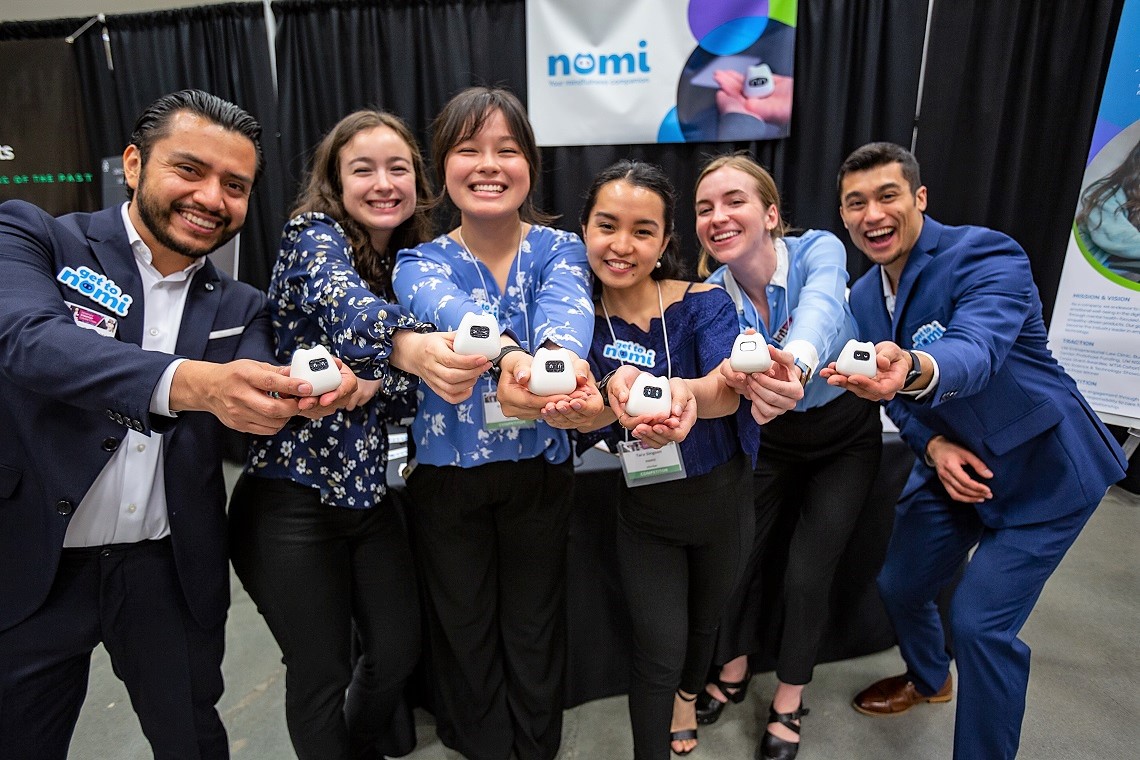
He sought the MS in Entrepreneurship to get the other half. Taking advantage of every aspect of the program, he assembled a multidisciplinary team from across the UW to help him develop nomi, an adorable biofeedback “petbot” that helps its owner manage stress. After leading nomi to the “sweet sixteen” of the Dempsey Startup Competition and the Jones + Foster Accelerator, he’s determined to take it to market.
“Coming into the program, I didn’t have confidence in my ability to lead a business,” Stone says. “Going through it, I feel way more equipped, more prepared to not only run a company, but also to direct it with purpose.”
Startup accelerator
Creative Destruction Lab-Seattle is driven by purpose. Part of an international network, CDL-Seattle is an accelerator for early stage startups with massive market potential to innovate in the areas of computational health and advanced manufacturing. It’s a partnership of the Foster School and the UW College of Engineering, Paul G. Allen School of Computer Science & Engineering and CoMotion, the hub for commercializing UW technologies.
The emerging companies are based around the country and sometimes the world. Referred by mentors and VCs, they first work with CDL staff to prepare for periodic session days, the highlight of the program. Morning small-group meetings with top-level mentors are followed by a gathering of all ventures, mentors and advanced Foster students.
“It’s like a live case study on steroids,” says Emer Dooley, CDL’s site lead and the Charlene M. and Arthur W. Buerk Endowed Faculty Fellow at Foster.
CDL sessions are not a pitch, but rather a platform for moderated, frank discussions between founders and mentors, one company at a time. From this round, mentors pick which companies they’ll work with for the next eight weeks. Even companies not chosen to continue walk away with valuable guidance.
Most of the companies are poised to raise millions but are led by deeply technical teams that need help with financials and marketing. UW students accepted into a parallel CDL course are embedded with one of the startups to provide that early market and financial research. They get a front-row seat at discussions and a chance to ask their own questions when mentors visit class.
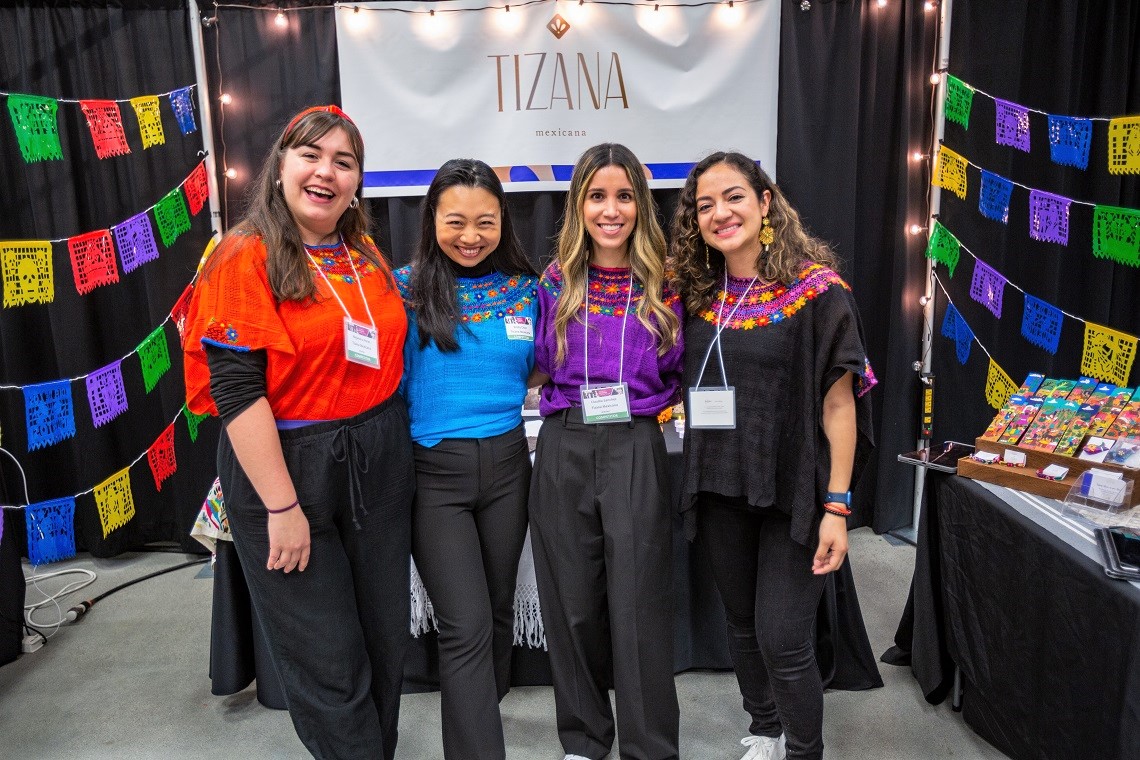
It makes an indelible impression for students like Suleiny Altamirano (MS 2023), a recent MS in Entrepreneurship grad who led Tizana Mexicana, her online marketplace for Mexican art and artists, to the Dempsey Startup Competition’s Saara Romu Community Impact Prize and a berth in the Jones + Foster Accelerator. She says her time spent inside a CDL startup rounded the comprehensive entrepreneurial education she experienced at Foster.
“Every founder, every mentor has a journey,” says Altamirano. “And that’s something to learn from as well.”
Networking with UW alumni in Seattle and beyond
Being in the room with entrepreneurs who were once in their shoes, many of them UW alumni, is a direct outgrowth of the way all points in the ecosystem work together: collaborating on ideas and spinning out new programs.
It’s a form of entrepreneurship itself. The result: a calendar bursting with workshops, hackathons and competitions of all kinds and sizes, plus a network of alumni and founders eager to help, Sallin says.
“We always called it the golden ticket, being a UW student. You can call anybody—literally anybody—in Seattle, whether they’re a CEO of a big company like Expedia or somebody with their own little company with a few people. They will always take your call and they will have time for you.”
Newbloom, of Membrion, says that the interconnected teams who run these programs and center and lab make this possible:
“Anything I needed help on, I could ask and they would know the exact right person to connect me with. I haven’t met a more incredible team focused on empowering students.”
